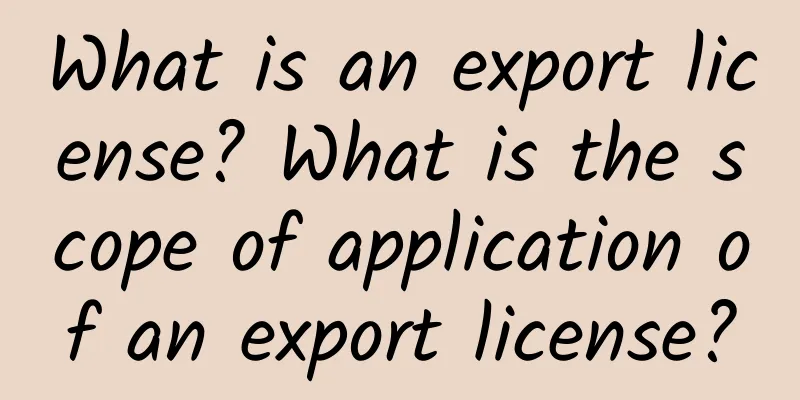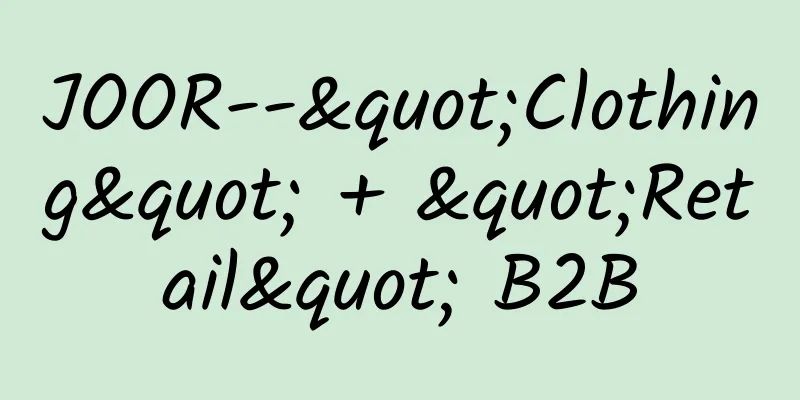|
The main contents and standards of COC factory inspection
The factory inspection system is the behavior of importers or buyers to send factory inspectors or entrust third-party factory inspectors to the factory for inspection regularly or irregularly every year to determine whether the factory's production strength and factory management meet the company's requirements. The factory inspection system is currently becoming an important factor affecting the export of Chinese companies. This article analyzes the background, content, standards and processes of the factory inspection system of foreign importers, explains the favorable and unfavorable effects of the factory inspection system, and proposes measures to deal with the factory inspection system from both the government and enterprise levels. 1. Overview of the factory inspection system for foreign importers
The factory inspection system is a behavior in which importers or buyers send factory inspectors or entrust third-party factory inspectors to the factory for inspection regularly or irregularly every year to determine whether the factory's production strength and factory management meet the company's requirements. Its main contents include the supplier's production code of conduct, corporate social responsibility, product quality and other aspects of factory evaluation. The factory inspection system is currently becoming an important factor affecting the export of Chinese companies.
1. Background of the factory inspection system for foreign importers
The factory inspection system is an important control measure implemented by foreign importers on the production behavior of exporters since the 1990s. The emergence of the factory inspection system has its profound background.
1. Importers’ requirements for quality control of imported products. Quality requirements have always been the core issue of commodity import and export. Due to the rapid economic development and material abundance, people’s requirements for quality of life are increasing day by day, and thus the standards for product quality and safety are constantly improving. Consumers’ strong demands for product quality and the strict requirements for supply in the international market competition have prompted importers to implement full-process control of imported goods, that is, starting from the manufacturer’s quality management capabilities, to the entire process of product circulation, consumption and waste disposal. The implementation of the factory inspection system has become an inevitable requirement for importers to control the quality of manufacturing enterprises.
2. Requirements for the organization and management of virtual enterprises for imports. The development of economic globalization has made business operations increasingly international. In order to control the market on a large scale and maximize investment returns, multinational enterprises must implement virtualization of enterprise organizations, that is, through resource integration, concentrate on operating the business links most related to the core competitiveness of the enterprise, and outsource the business links and functions inconsistent with the core competitiveness, thereby forming a virtual enterprise organization formed through cooperation with outsourcing enterprises. External cooperative enterprises constitute an integral part of the virtual enterprise organization and the supply chain of the enterprise. According to the requirements of enterprise virtualization management, core enterprises must monitor the production and processing processes of external cooperative enterprises, especially foreign cooperative enterprises. Such monitoring measures have formed the factory inspection system for importers.
3. Requirements for social responsibility management of import enterprises. At present, corporate social responsibility has become an increasingly important part of corporate management. This is due to both external pressure and internal requirements of corporate operations. From an external perspective, consumers in foreign countries, especially developed countries, not only require products to meet high quality, safety, and environmental protection requirements, but also require to know where the products are produced, under what conditions, and by what producers. For enterprises that do not meet the requirements (such as using child labor), they will resist, thus forming external pressure for import enterprises to inspect manufacturers; according to foreign surveys, enterprises that bear social responsibility have a higher social reputation, which has a positive impact on the sales of corporate products, and bearing social responsibility has become an internal requirement for enterprises. The external pressure and internal requirements of corporate social responsibility have prompted importers to implement social responsibility inspections on manufacturers as a component of their own corporate social responsibility management and a means to enhance their own social reputation.
(II) Main contents and standards of factory inspection system
1. Product quality control. The important content of the factory inspection by importers is to inspect the product quality control capabilities and conditions of the manufacturing enterprises. In terms of quality control, importers usually inspect the comprehensive quality management of products from purchasing, warehousing, equipment management, production process, post-processing, packaging to transportation based on many internationally accepted international quality standards. The most important quality inspection standards are: AQL (ACCEPTABLE QUALITY LEVEL) international inspection quality standards, ISO9000 international quality standard system and special quality control standards formulated by multinational companies according to consumer requirements.
AQL is the most commonly used acceptance parameter and is widely used in export inspection of clothing and textiles. AQL standards include AQL0.010, AQL0.025, AQL0.065, AQL1000, etc., which are used in the inspection of different substances. During the inspection, the number of samples and the number of qualified and unqualified products are determined by a single sampling plan based on the batch range, inspection level, and AQL value. In view of the universality and standardization of AQL, it has become a pass for quality inspection when customers inspect the factory.
Importers may also adopt different requirements for product quality in the factory inspection system according to the consumer demand of their respective products. For example, after the EU issued a draft of the new toy safety standard in 2006, many EU importers quickly added requirements to strictly prohibit the use of chemicals that may cause cancer and gene mutations.
2. Production Code Standards. With the rise of the social responsibility movement in the West, production code standards have also begun to become one of the important standards of the importer's factory inspection system. Production codes are formulated by international industry associations, multilateral institutions and non-governmental organizations to regulate the production behavior of manufacturers, such as the International Toy Association (ICTI), the World Sporting Goods Industry Association (WFSGI), the British Ethical Trading Initiative (ETI), the Workers' Rights Confederation (WRC), the Apparel Factory Standards of Conduct (WRAPP), the Fair Labor Alliance (FLA), etc. The production code also includes the code of conduct including corporate social responsibility formulated and promoted by enterprises based on the Universal Declaration of Human Rights and the "Fundamental Labor Conventions" of the International Labor Organization. |










